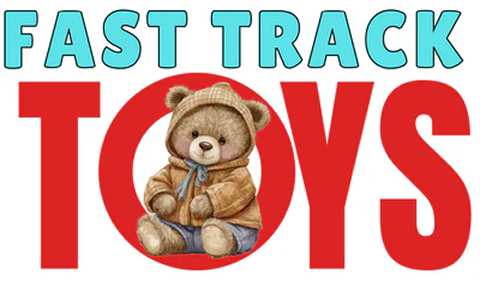Selecting the right toys for your child goes beyond just picking something fun—it's about finding toys that challenge their minds, spark creativity, and promote cognitive development. Thinking toys, which are designed to stimulate problem-solving, logic, and critical thinking, can play a significant role in your child’s intellectual growth. However, it’s essential to choose toys that are age-appropriate to ensure the best learning experience. Here's a guide to help you choose the best thinking toys based on your child’s age.
Babies and Toddlers (0-2 Years)
At this stage, children are just beginning to explore their surroundings and develop essential sensory and motor skills. The focus should be on toys that engage their senses and encourage exploration.
Recommended Toys:
- Shape Sorters: These toys help children recognize shapes and develop hand-eye coordination. They also introduce the concept of cause and effect.
- Stacking Blocks: Simple blocks can teach toddlers about balance, shape recognition, and spatial awareness.
- Interactive Play Mats: These stimulate sensory experiences by encouraging babies to touch, feel, and move, which helps with cognitive and motor development.
Preschoolers (3-5 Years)
Children at this age are starting to engage in more imaginative play and develop early problem-solving skills. They are curious, love asking questions, and are open to new learning experiences.
Recommended Toys:
- Puzzles: Simple jigsaw puzzles are great for developing problem-solving skills and patience. Look for puzzles with big, colorful pieces that depict familiar objects or characters.
- Construction Sets: Toys like LEGO Duplo or wooden blocks allow preschoolers to build, encouraging creativity, spatial reasoning, and planning skills.
- Memory Matching Games: These games help improve short-term memory, attention, and concentration.
Early Elementary (6-8 Years)
As children move into early elementary school, they become more adept at critical thinking and logical reasoning. Toys that require them to plan, experiment, and explore solutions are ideal at this age.
Recommended Toys:
- STEM Kits: Science kits or robotics sets encourage hands-on learning in science, technology, engineering, and math. They challenge kids to think critically while having fun.
- Logic Games: Toys like "Rush Hour" or "Gravity Maze" require strategic thinking and planning. These games can boost problem-solving skills and mental agility.
- Building Sets: More complex construction sets, such as LEGO Technic, can help children develop engineering and design skills while improving spatial awareness.
Older Kids (9-12 Years)
Older kids are capable of engaging in more complex, multi-step problem-solving. They enjoy challenges that require strategy, patience, and deeper critical thinking.
Recommended Toys:
- Strategy Board Games: Games like chess or "Catan" promote strategic thinking, decision-making, and forward planning.
- Advanced Robotics or Coding Kits: Toys like LEGO Mindstorms or beginner coding kits allow kids to build and program robots, helping them learn logical reasoning and basic programming skills.
- 3D Puzzles: These puzzles challenge spatial perception and fine motor skills while also fostering persistence and patience.
Teens (13+ Years)
At this stage, teenagers are capable of abstract thinking and enjoy toys or games that involve complex problem-solving and strategic thinking. Educational toys that engage them intellectually are ideal.
Recommended Toys:
- Advanced Strategy Games: Board games like "Risk" or "Ticket to Ride" encourage strategic planning, negotiation, and analytical thinking.
- DIY Kits: Electronics or engineering kits, such as Arduino or Raspberry Pi, challenge teens to create and build projects from scratch, promoting critical thinking and technical skills.
- Puzzle Boxes: These intricate puzzle boxes require patience, logic, and creativity to solve, offering a satisfying mental challenge for older kids and teens.
Choosing the right thinking toy for your child’s age is critical in fostering their cognitive development. From sensory exploration for babies to advanced problem-solving for teens, there’s a wide range of toys that can encourage growth and learning at every stage. When selecting toys, consider your child’s developmental needs, interests, and the level of challenge they can handle. This way, you can provide them with a fun and engaging way to learn, explore, and grow.


